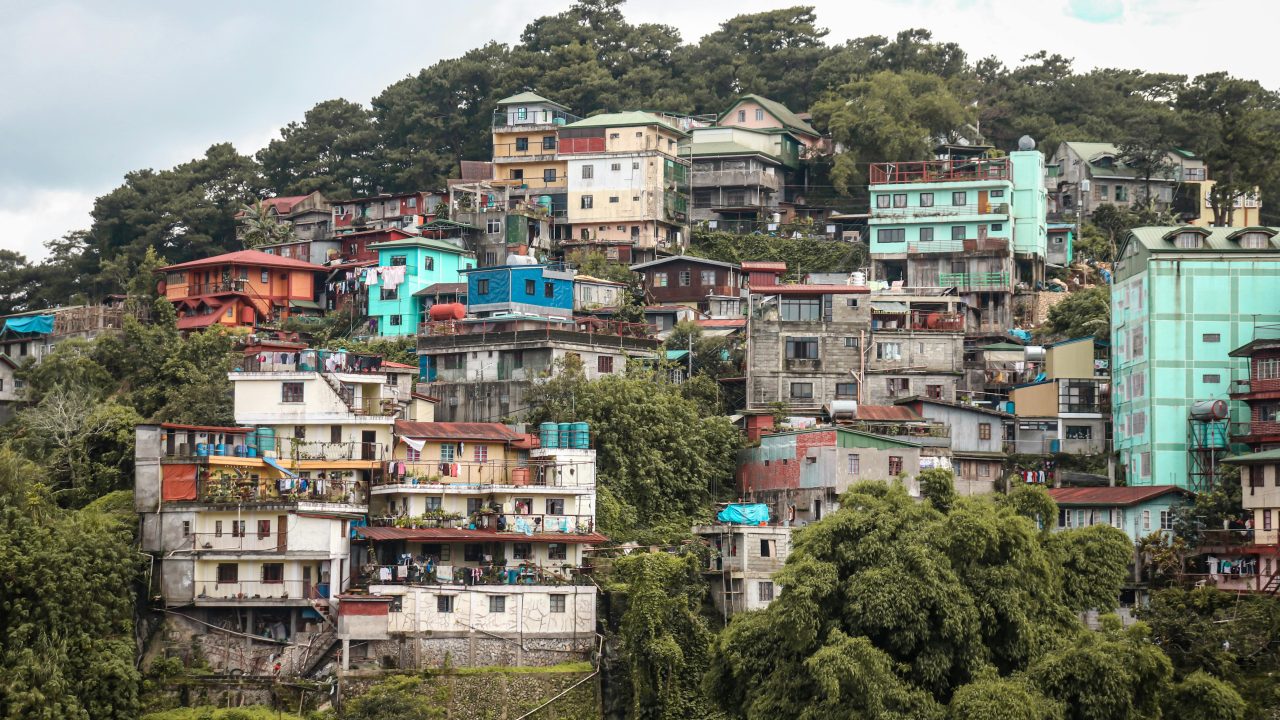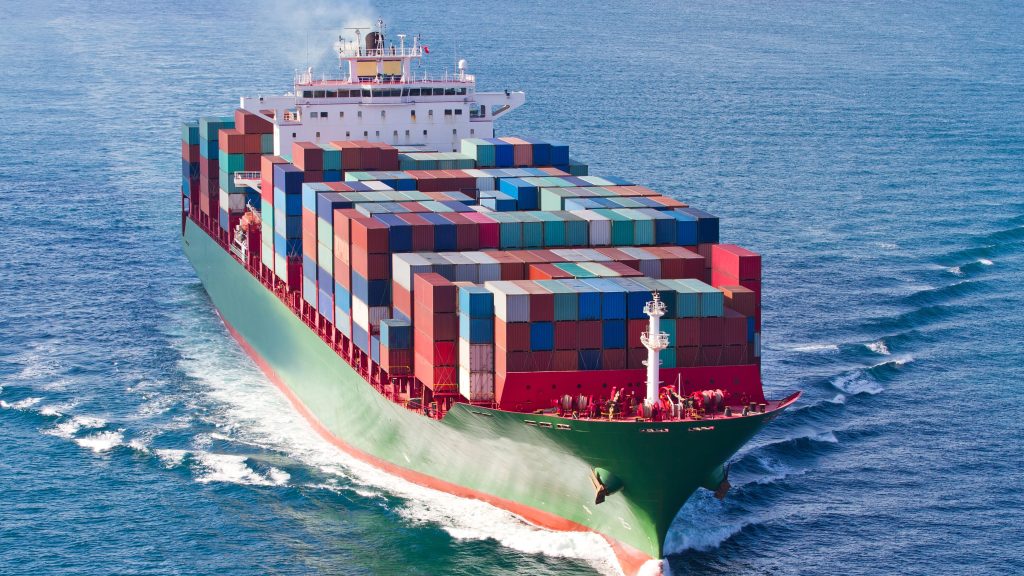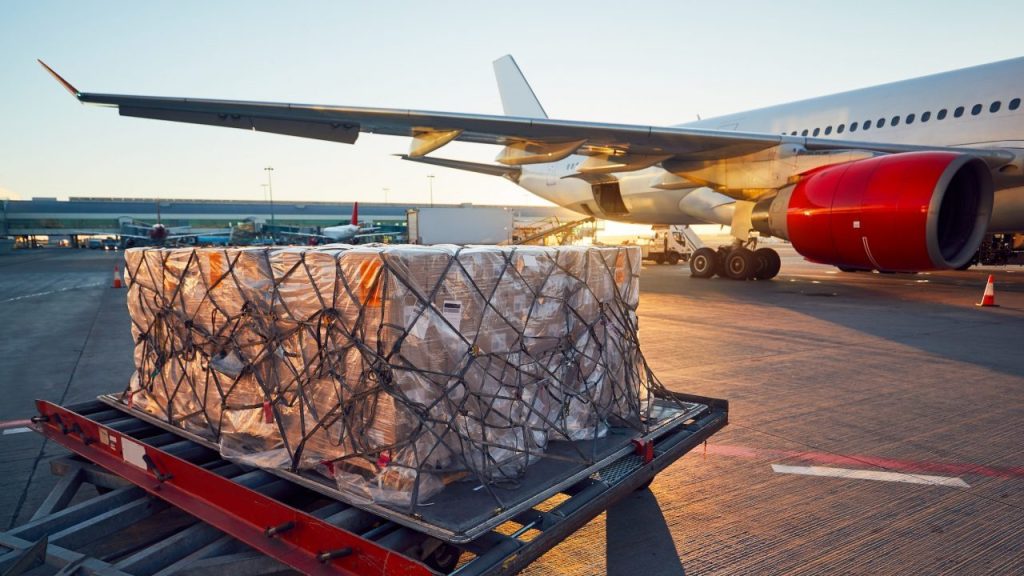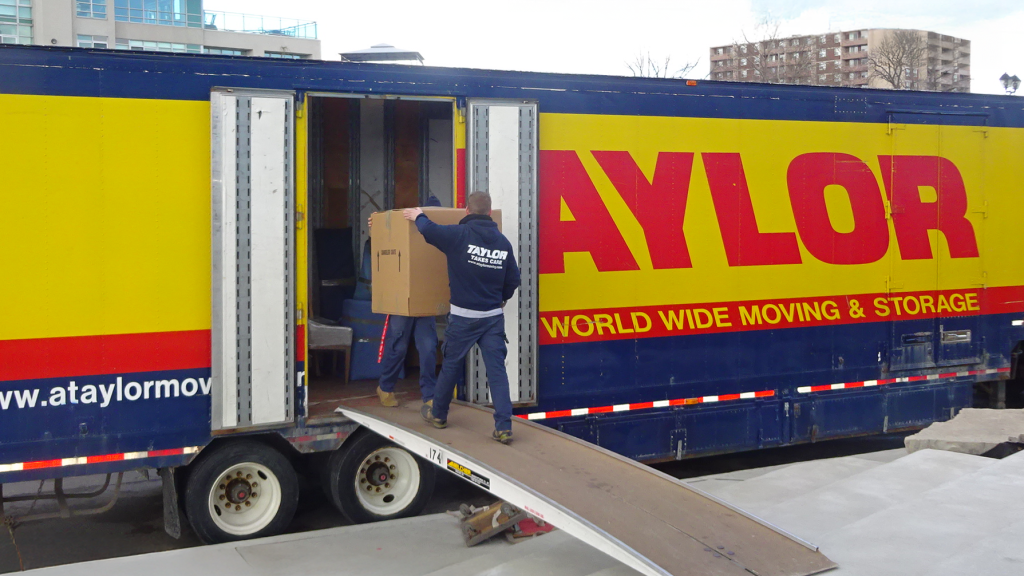
International Moving between Canada and the Philippines
Moving overseas to or from Canada and the Philippines? Learn more about packing, shipping, and customs to make your international relocation stress-free.
Planning Your Move
The first step in your international move is a tailored assessment of your needs. You can complete our AI-powered survey or meet with our consultants via Zoom, Google Meet, or in person. During this consultation, we’ll determine your packing requirements, customs considerations, and other key details.

Why Choose Taylor International?
We offer flexible, high-quality moving solutions through our extensive supply chain. As members of the International Association of Movers (IAM) and Fédération Internationale des Déménageurs Internationaux (FIDI), we provide access to a vast global network, ensuring reliable service with backup options for a seamless transition.
- Premium Service: Our FIDI-certified partners offer top-tier care.
- Budget-Friendly Options: IAM-certified movers provide reliable, cost-effective solutions.
- Balanced Approach: We customize packages to match your priorities.
- Diversified Supply Chain: No matter the option selected in the event of a major issue, we have back-up plans to ensure your move is performed with your customized plan.
- Extensive 3rd Party Partnerships: Our network also encompasses a vast array of 3rd party services from appliance disassembly, gym disassembly and other critical expert assistance to ensure your items are protected.
- Robust Cybersecurity: Our methods, procedures and systems enable your most sensitive information to be secure.
- Customs Mastery: Our international move managers work with you to ensure that you can navigate the complexities of customs, imports, exports and local regulations with the upmost care.
- Comprehensive Insurance: Taylor International provides full replacement value so you do not need to worry about the what ifs and instead focus on the will bes when you get to your destination. We will also source any services needed to render this service globally.
Our strict vetting process ensures only top-performing providers handle your shipment. If a supplier doesn’t meet our standards, they’re removed from our network—your satisfaction is our priority.
Choosing the Right Shipping Method
We help you select the most efficient transport option:

Sea Freight
The most economical choice for most moves.

Air Freight (LTL)
Faster delivery at a premium.

Hybrid Solutions
Essential items arrive by air, with the rest shipped via sea.
No matter your budget, we’ll find the best option for you.
Your Moving Journey
After your consultation, our specialists create a personalized moving plan and provide a detailed quote. Once confirmed, a dedicated moving coordinator will manage the process, ensuring smooth navigation of documentation, customs, and compliance requirements—avoiding delays or unexpected fees.
Pasig, located in the eastern part of Metro Manila, is one of the Philippines’ most dynamic and fast-growing cities. Known for its vibrant commercial districts, such as Ortigas Center, and its mix of urban amenities with a more relaxed suburban feel, Pasig is an increasingly popular destination for Canadians relocating to the Philippines. With its combination of modern infrastructure, thriving businesses, and access to top-tier educational and healthcare facilities, Pasig offers a high standard of living. However, adjusting to the local lifestyle and understanding the practicalities of moving can present challenges. This is where professional relocation and destination services become essential.
The housing market in Pasig is diverse, with various options ranging from luxury condominiums to affordable townhouses and apartment units. Whether newcomers are seeking a modern high-rise near Ortigas Center or a quieter neighborhood outside the bustling business district, finding the right accommodation is crucial for a smooth transition. Relocation service providers can assist in identifying the best neighborhoods based on lifestyle preferences, proximity to work, and budget, as well as managing the lease negotiation process. Their expertise ensures that newcomers can settle into a home that suits their needs while minimizing the stress of navigating the local real estate market.
Cultural adjustment is another important aspect when moving to Pasig. While English is widely spoken, Filipino (Tagalog) and other regional languages are commonly used in daily interactions. Many relocation services offer language lessons and cultural orientation to help newcomers understand local customs, business practices, and social norms, making it easier to integrate into the community and workplace.
Navigating practical matters such as setting up utilities, opening a local bank account, and dealing with local government regulations can also be daunting without assistance. A professional relocation service provider can guide newcomers through these processes, ensuring they complete all the necessary paperwork for work permits, visas, and other legal requirements. They can also help expats familiarize themselves with public transportation options, which is essential given the heavy traffic in Pasig.
Pasig is also home to numerous educational institutions and medical facilities, which are key considerations for expats moving with families. Relocation services can offer recommendations on reputable schools and healthcare providers, ensuring that all aspects of family life are well taken care of.
With the support of a reliable destination service provider, expats moving from Canada to Pasig can quickly adapt to their new life, enjoying all the conveniences and opportunities the city has to offer while minimizing the challenges of relocation.
Quezon City, the largest city in Metro Manila, offers an exciting yet unique environment for Canadians looking to relocate to the Philippines. As a dynamic, urban hub, it boasts a thriving business landscape, excellent educational institutions, and an array of modern conveniences, making it an attractive option for expats. However, moving to Quezon City can present its challenges, from navigating the fast-paced lifestyle to adjusting to local customs, which is where professional relocation and destination services become crucial to easing the transition.
Quezon City is an exciting blend of urban sophistication and suburban charm. With its wide range of housing options—from upscale condominiums to quieter suburban homes—finding the ideal place to live can be an overwhelming task without local insight. A relocation service provider can help expats find housing that suits their budget and lifestyle, offer advice on lease negotiations, and even assist with understanding the local real estate market. Whether living near bustling commercial areas like the Quezon City Business District or in quieter residential neighborhoods, these services can ensure that newcomers find the right fit.
Adjusting to the cultural differences in Quezon City is also a key aspect of settling in. While English is widely spoken and understood in business and government, the local languages are Filipino (Tagalog) and various regional dialects, including Cebuano. Relocation services often offer language lessons to help expats communicate more effectively, as well as cultural orientation to familiarize them with local traditions, etiquette, and social norms.
Quezon City also has a strong infrastructure, including excellent healthcare facilities, shopping malls, and dining options. However, the city is known for its traffic congestion, so it’s important to consider commute times when choosing a place to live. Relocation experts can provide guidance on transportation options and help expats find housing that minimizes long commutes.
Practical tasks like setting up utilities, opening a bank account, obtaining work permits, and securing necessary visas can be time-consuming and confusing without assistance. Relocation providers streamline these processes, ensuring that all legal and logistical tasks are managed smoothly. For those relocating with families, they can also offer advice on local schools and healthcare facilities.
Ultimately, with the help of professional destination services, Canadians relocating to Quezon City can quickly adjust to life in the heart of Metro Manila, embracing the city’s vibrant culture and endless opportunities.
Davao City, located in the southern part of the Philippines, is known for its clean, peaceful environment, strong local economy, and rich cultural heritage. For Canadians relocating to Davao, this vibrant city offers a unique blend of modern urban living and the serene beauty of nature, with nearby mountains, beaches, and a laid-back lifestyle. While Davao is an increasingly popular destination for expats, the transition can come with its own set of challenges, making professional relocation and destination services invaluable for a smooth and stress-free move.
One of the first things expats may notice when moving to Davao is the city’s commitment to cleanliness, order, and safety, making it one of the most livable cities in the Philippines. However, newcomers may also experience cultural differences, particularly in social norms and language. While English is widely spoken, especially in business and government, the local language is Cebuano (or Bisaya), and learning some basic phrases can go a long way in fostering positive relationships. Relocation services can offer language classes and cultural orientation to help newcomers navigate their new environment with ease.
Housing in Davao is diverse, from luxurious condominiums in the city center to spacious homes in suburban areas. Whether you prefer urban living or a quieter lifestyle near nature, finding the right accommodation in Davao can be a challenge without local insight. Destination service providers can assist by offering personalized housing options, helping with lease negotiations, and advising on the best locations based on your work or lifestyle preferences.
Another critical aspect of settling into Davao is navigating local bureaucracy and practicalities such as setting up utilities, opening a bank account, and securing work permits. Relocation services can streamline these processes, helping newcomers to complete necessary paperwork and understand local systems. Additionally, expats with families will benefit from advice on local schools and healthcare facilities, ensuring that all aspects of life are taken care of.
For many Canadians, Davao’s relatively relaxed pace of life is a refreshing change from the bustle of larger cities. With the support of expert relocation and destination service providers, expats can quickly adjust to their new surroundings, make lasting connections, and embrace the unique charm of Davao City.
Cebu City, often referred to as the “Queen City of the South,” offers a unique blend of modern living and rich cultural heritage, making it an increasingly popular destination for expats moving to the Philippines. For Canadians making the transition to Cebu, the city presents a welcoming environment, but also one that may require some adjustments in terms of lifestyle, local customs, and practical logistics. Professional relocation services and destination assistance can play a vital role in ensuring a smooth transition and a seamless settling-in experience.
One of the first challenges faced by expats moving to Cebu is understanding the local culture and customs. While Cebu is a progressive city with many modern amenities, it retains a strong sense of Filipino tradition and hospitality. Most Cebuanos speak Cebuano (Bisaya), but English is also widely spoken, especially in urban areas and business settings. Relocation experts can help newcomers navigate the linguistic and cultural nuances by offering language classes, cultural orientation, and advice on local customs, social etiquette, and business practices.
In terms of housing, Cebu offers a range of options, from luxurious beachfront condominiums to suburban homes in quieter neighborhoods. Depending on your work location and personal preferences, finding the right accommodation can be a challenge without local knowledge. Destination service providers can assist by identifying suitable housing options, negotiating lease terms, and guiding newcomers through the local real estate market, ensuring a smooth move-in process.
Relocating to Cebu also means adjusting to a new set of practical considerations. Setting up utilities, securing a local bank account, and navigating government requirements for work permits or visas can feel daunting without guidance. Relocation professionals can assist with all the necessary paperwork, ensuring that newcomers meet all legal and regulatory requirements.
For those moving with families, Cebu also offers quality educational institutions and healthcare services. Relocation specialists can help expats find the right school for their children, as well as recommend hospitals and clinics, ensuring that all aspects of life in Cebu are covered.
Ultimately, moving to Cebu City from Canada can be an exciting adventure. With the support of expert relocation and destination services, expats can settle in quickly, embrace the local culture, and start enjoying life in one of the Philippines’ most dynamic and beautiful cities.
Moving to Manila from Canada presents an exciting opportunity to experience a vibrant and bustling metropolis with a rich cultural history, diverse workforce, and emerging business opportunities. However, adjusting to life in the Philippines’ capital city can be a challenge for newcomers, especially for those accustomed to the quieter pace of life in Canada. This is where professional relocation services and destination assistance become essential to ensure a smooth transition.
One of the first hurdles that many Canadians face when relocating to Manila is understanding the local culture and navigating the differences in social norms. Manila is a city that blends modernity with tradition, and while English is widely spoken, local languages like Filipino and Tagalog are also prevalent. Relocation specialists can help bridge this cultural gap by providing language lessons, cultural orientation, and support in adapting to local customs, from etiquette to dining habits.
Another key factor in settling into Manila is finding suitable housing. The city offers a range of accommodation options, from high-rise apartments to gated communities in suburban areas. Destination service providers can help expats find housing that matches their preferences and budget, assist with lease agreements, and provide guidance on understanding local real estate practices. Given Manila’s traffic congestion, they can also advise on finding housing near your workplace or public transportation options to reduce commute times.
Setting up utilities and dealing with bureaucracy can also be daunting for newcomers. Relocation services can facilitate smooth integration by assisting with paperwork for visas, work permits, bank accounts, and utility setups, ensuring that the necessary legal and logistical steps are handled efficiently. Additionally, those moving with families will benefit from advice on schools, medical facilities, and other essential services.
Ultimately, with the right support from a trusted destination service provider, the transition from Canada to Manila can be smooth and exciting, allowing expats to enjoy everything the Philippines has to offer.
Moving from the Philippines to Edmonton is an exciting step toward new opportunities and a better quality of life. Edmonton, the capital of Alberta, offers a lower cost of living than many other Canadian cities, a strong job market, and a welcoming Filipino community. However, adjusting to life in a new country requires careful planning and understanding of settlement services, employment opportunities, and cultural differences.
Visa and Immigration Process
Filipinos moving to Edmonton typically arrive through the Express Entry system, Alberta’s Provincial Nominee Program (PNP), family sponsorship, or international student visas. The Alberta Immigrant Nominee Program (AINP) is an excellent pathway for skilled workers and tradespeople, particularly in industries where labor shortages exist. Upon arrival, newcomers should apply for a Social Insurance Number (SIN) to access government benefits and employment opportunities.
Housing and Cost of Living
Compared to other major cities like Vancouver and Toronto, Edmonton offers more affordable housing options. Rental prices for a one-bedroom apartment range from CAD $1,200 to $1,800 per month, while suburban areas offer even more cost-effective options. Many Filipino immigrants settle in neighborhoods like Mill Woods, Killarney, and The Meadows, where established Filipino communities provide cultural familiarity and social support. Newcomers should budget for upfront housing costs, including the first and last month’s rent and utilities.
Employment and Job Market
Edmonton’s economy is largely driven by industries such as oil and gas, healthcare, education, and construction. Many Filipino newcomers initially work in survival jobs before transitioning into their desired professions. Acquiring Canadian-recognized certifications, improving English proficiency, and networking through employment agencies such as the Edmonton Mennonite Centre for Newcomers (EMCN) can improve job prospects. The Alberta Filipino Journal and community Facebook groups are also excellent resources for job leads.
Cultural Adaptation and Community Support
Adapting to Edmonton’s cold winters can be challenging for newcomers from the Philippines, where the climate is tropical. Winter temperatures often drop below -20°C, so investing in warm clothing, winter boots, and learning about winter safety is essential. Fortunately, Edmonton has a strong Filipino presence, with cultural organizations such as the Philippine Bayanihan Association and the Filipino-Canadian Saranay Association providing social events, networking opportunities, and assistance for new immigrants.
Healthcare and Public Services
Alberta offers publicly funded healthcare, and new residents should apply for the Alberta Health Care Insurance Plan (AHCIP) as soon as they arrive. Unlike some provinces, Alberta has no waiting period for healthcare coverage. Filipino-speaking healthcare professionals and community clinics make it easier for new immigrants to access medical services.
Education and Schools
For families moving with children, Edmonton provides excellent public and Catholic school systems. Many schools offer English as a Second Language (ESL) programs to help non-native speakers adjust. Higher education institutions such as the University of Alberta and MacEwan University provide excellent academic and career advancement opportunities.
By leveraging Edmonton’s strong job market, affordable cost of living, and vibrant Filipino community, newcomers from the Philippines can integrate successfully and build a comfortable life in their new home. With the right preparation and support, Edmonton can be a welcoming and prosperous place for Filipino immigrants.
Relocating from the Philippines to Vancouver is an exciting opportunity for individuals and families looking for a high quality of life, diverse communities, and strong economic opportunities. As one of Canada’s most multicultural cities, Vancouver is home to a thriving Filipino community, making it easier for newcomers to settle in and adapt. However, moving to this coastal city requires careful planning to navigate immigration procedures, housing options, employment prospects, and cultural adjustments.
Visa and Immigration Process
Most Filipinos moving to Vancouver arrive through skilled worker programs, family sponsorship, or student visas. The Express Entry system is a popular immigration route for skilled professionals, while British Columbia’s Provincial Nominee Program (BC PNP) provides additional opportunities for in-demand workers. Upon arrival, newcomers must apply for a Social Insurance Number (SIN) to work legally and access government benefits.
Housing and Cost of Living
Vancouver is known for its high cost of living, especially in the housing market. Rent for a one-bedroom apartment in the city center can range from CAD $2,500 to $3,500 per month. Many Filipino immigrants choose to live in more affordable areas like Surrey, Burnaby, and Richmond, where strong Filipino communities provide social and cultural support. It’s recommended to secure temporary housing upon arrival before committing to a long-term lease.
Employment and Job Market
Vancouver has a diverse economy with thriving industries in technology, healthcare, tourism, and construction. While many newcomers initially work in entry-level jobs, obtaining Canadian-recognized certifications and improving English proficiency can enhance employment opportunities. Organizations like S.U.C.C.E.S.S. and ISS of BC offer job search assistance, resume workshops, and employment programs tailored for immigrants.
Cultural Adaptation and Community Support
Adjusting to Vancouver’s climate and lifestyle can take time. Unlike the tropical climate of the Philippines, Vancouver has a temperate coastal climate with rainy winters but milder temperatures compared to other Canadian cities. Investing in waterproof clothing and warm layers is essential. The city’s strong Filipino community offers plenty of support through organizations like the Philippine Consulate in Vancouver, Filipino cultural associations, and local churches that host events, networking opportunities, and social gatherings.
Healthcare and Public Services
British Columbia provides publicly funded healthcare, and newcomers must apply for the Medical Services Plan (MSP). There is a waiting period of up to three months for MSP coverage to begin, so it is advisable to secure private health insurance in the meantime. Vancouver has many Filipino-speaking doctors and healthcare workers, making the healthcare transition easier.
Education and Schools
For families moving with children, Vancouver offers high-quality public and private school options, with English as a Second Language (ESL) support available. Higher education institutions such as the University of British Columbia (UBC) and Simon Fraser University (SFU) are top choices for post-secondary education.
By leveraging settlement services, employment programs, and community networks, Filipino immigrants can integrate successfully into Vancouver’s multicultural and dynamic environment, making it their new home.
Relocating from the Philippines to Calgary is an exciting opportunity for many individuals and families seeking a fresh start in Canada. Known for its strong economy, breathtaking natural landscapes, and welcoming communities, Calgary offers a high quality of life with relatively affordable housing compared to other major Canadian cities like Toronto and Vancouver. However, adjusting to life in Calgary requires careful planning and an understanding of essential settlement services.
Visa and Immigration Process
Most Filipinos moving to Calgary do so through skilled worker programs, family sponsorship, or international student pathways. The Express Entry system and Alberta’s Provincial Nominee Program (PNP) are popular options for skilled professionals. Upon arrival, obtaining a Social Insurance Number (SIN) is necessary for work and accessing government services.
Housing and Cost of Living
Calgary boasts a lower cost of living compared to cities like Toronto and Vancouver, making it an attractive destination for newcomers. Popular areas for Filipino immigrants include Northeast Calgary, such as Marlborough, Rundle, and Falconridge, where there are strong Filipino communities and affordable housing options. Rental costs typically range between CAD $1,200 and $2,500 per month, depending on the size and location. It’s advisable to secure temporary housing before committing to a long-term rental.
Employment and Job Market
Calgary’s economy is driven by industries such as oil and gas, construction, healthcare, and information technology. Many Filipino immigrants start in entry-level jobs before transitioning into their professions. Upgrading skills and obtaining Canadian-recognized certifications can enhance job prospects. Employment agencies, networking events, and the Calgary Catholic Immigration Society (CCIS) provide valuable job search support.
Cultural Adaptation and Community Support
Calgary’s climate is vastly different from the tropical warmth of the Philippines, with winter temperatures often dropping below -20°C. Investing in quality winter clothing is essential. Fortunately, Calgary has a vibrant Filipino community, with organizations like the Filipino Association of Calgary and cultural centers offering support, social events, and networking opportunities.
Healthcare and Public Services
Healthcare in Alberta is publicly funded, and newcomers should apply for an Alberta Health Care Insurance Plan (AHCIP) card as soon as they arrive. Since there is no waiting period for AHCIP coverage, permanent residents can access medical services immediately. Many Filipino-speaking healthcare professionals are available, ensuring a comfortable transition for those still improving their English skills.
Education and Schools
For families moving with children, Calgary has excellent public and Catholic school systems, with English as a Second Language (ESL) support available for non-native speakers. Post-secondary institutions like the University of Calgary and SAIT (Southern Alberta Institute of Technology) offer high-quality education and pathways to career advancement.
By leveraging community networks, government resources, and settlement services, Filipino immigrants can integrate successfully into Calgary’s diverse and dynamic environment, ensuring a smooth transition into their new home.
Relocating from the Philippines to Toronto is an exciting journey, but it comes with a variety of challenges, from cultural adjustments to logistical concerns. As Canada’s largest city, Toronto offers a high quality of life, diverse communities, and ample job opportunities, making it a popular destination for Filipino immigrants. To ensure a smooth transition, careful planning and understanding of essential settlement services are key.
Visa and Immigration Process
Most Filipinos moving to Toronto come through family sponsorship, skilled worker programs, or as international students. The Express Entry system is the primary pathway for skilled professionals, while the Provincial Nominee Program (PNP) is an option for those with specific in-demand skills. For newcomers, obtaining a Social Insurance Number (SIN) upon arrival is crucial for employment and accessing government services.
Housing and Cost of Living
Toronto’s real estate market is competitive, and rental prices can be high. Popular neighborhoods for Filipino immigrants include North York, Scarborough, and Mississauga, where there are well-established Filipino communities and affordable housing options compared to downtown. Newcomers should be prepared to budget for first and last month’s rent, along with utilities, which may be higher than in the Philippines due to colder weather conditions.
Employment and Job Market
Toronto has a thriving job market, but newcomers may need to upskill or obtain Canadian certifications to be competitive. Industries such as healthcare, finance, technology, and skilled trades are actively hiring. Many Filipino immigrants start in survival jobs before transitioning into their fields of expertise. Networking through Filipino community organizations and employment agencies can greatly improve job prospects.
Cultural Adaptation and Community Support
Adjusting to the Canadian lifestyle can take time, especially in terms of climate, work culture, and social norms. Winters in Toronto are vastly different from the tropical climate of the Philippines, so investing in proper winter clothing is essential. Fortunately, the city has a vibrant Filipino community with organizations like the Philippine Independence Day Council (PIDC) and the Kababayan Multicultural Centre, offering cultural events, job assistance, and social support.
Healthcare and Public Services
Healthcare in Canada is publicly funded, and newcomers can apply for an Ontario Health Insurance Plan (OHIP) card. It’s advisable to get private insurance for the first few months, as OHIP coverage typically starts after a three-month waiting period. Many Filipino-speaking healthcare professionals are available, easing the transition for those still adapting to English or French.
Education and Schools
For families with children, Toronto offers high-quality public and Catholic schools, with some institutions providing English as a Second Language (ESL) support. Universities such as the University of Toronto and Ryerson University are top choices for higher education, with various scholarships available for international and immigrant students.
By leveraging settlement services, community networks, and government resources, Filipino immigrants can integrate successfully into Toronto’s diverse and dynamic environment, making it their new home.